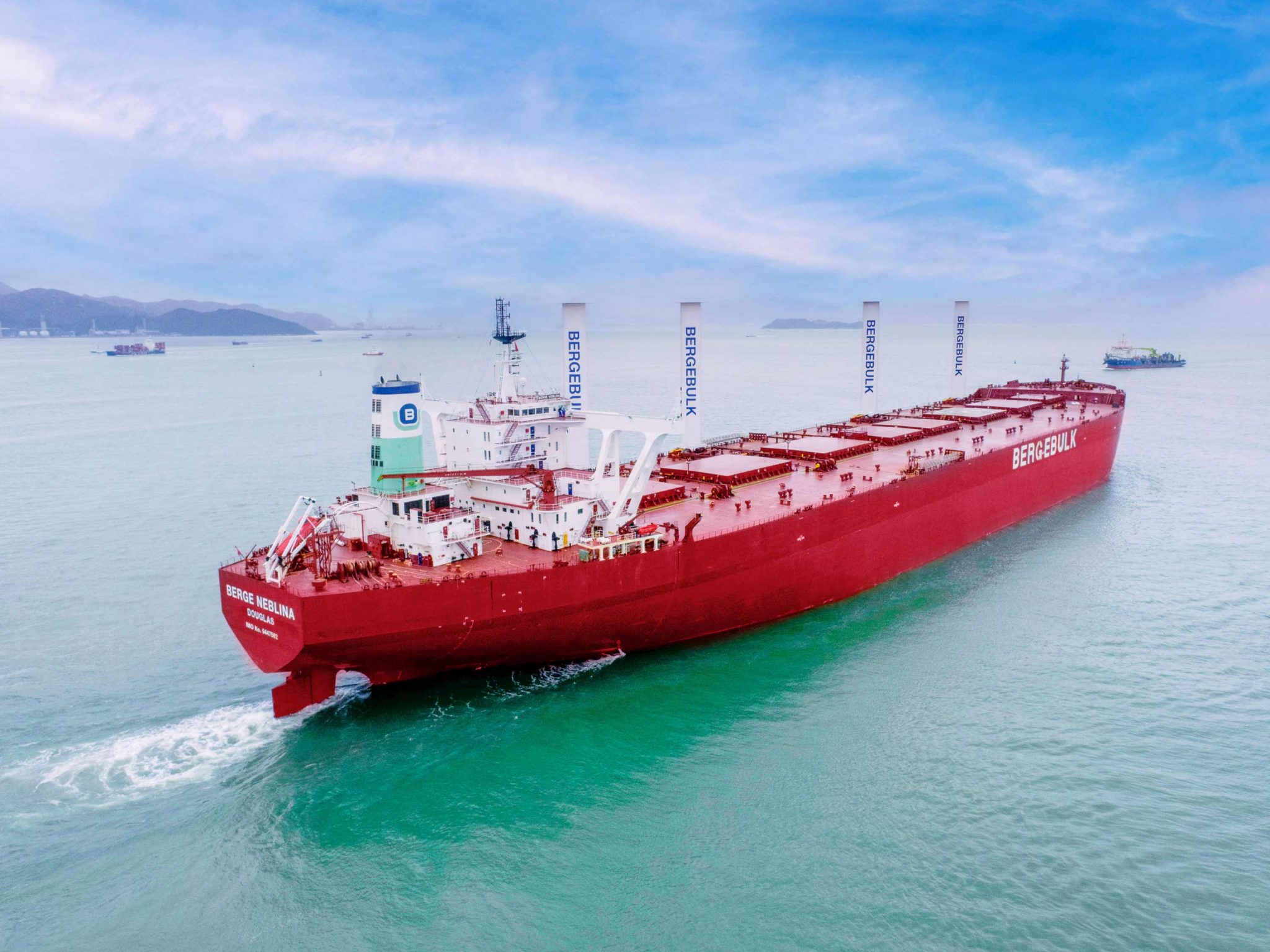Berge Bulk has announced the successful installation of four emissions-reducing rotor sails on Berge Neblina, A 388,000 DWT Valemax Ore Carrier.

Each of the four Rotors Sails, designed by Anemoi Marine Technologies Ltd, stand 35 metres tall and 5 metres in diameter. The Rotor Sails are integrated with a bespoke folding deployment system, that allows them to lay flat to mitigate impact on air draught and cargo handling operations when in port.
With the newly installed Rotor Sails, Berge Neblina is expected to save more than 1,000 tonnes of fuel annually.
Following the installations during Berge Neblina’s scheduled dry docking at Yulian Shekou shipyard in China, the vessel is now on her way to Brazil.
“Leveraging the latest in wind technology to reduce our fleet’s emissions is an important part of Berge Bulk’s ‘Maritime Marshall Plan’ for decarbonisation. We are optimistic that these Rotor Sails can deliver up to 8% carbon reduction.” - Paolo Tonon, Technical Director, Berge Bulk
Rotor Sails, also known as ‘Flettner Rotors’, harness wind power through vertical cylinders that rotate, utilising the Magnus Effect to provide additional thrust to the vessel. By leveraging wind energy, Berge Neblina will see increased efficiency by reducing the load on the main engine while maintaining speed, therefore substantially reducing fuel consumption and resulting in lower carbon emissions.
This news follows a string of other decarbonisation efforts announced by Berge Bulk in recent months. Last October, Berge Bulk unveiled four BARTech WindWings on Newcastlemax vessel, Berge Olympus. In March, Berge Bulk announced the order of two ammonia-fuelled bulkers for delivery in 2027. Meanwhile, the company is making steady progress with its commitment to fully offset all scope 1 emissions by 2025 and plant 25 million trees by 2026.
THREE KEY MILESTONES
Berge Bulk has set an ambitious decarbonisation timeline which consists of three key milestones…
- Offset 100% of scope-1 carbon emissions from 2025.
- Build and operate a zero-emissions vessel by 2030.
- Achieve zero emissions fleetwide by 2050.
FOUR PILLAR PLAN
To meet this timeline, Berge Bulk has developed the four-pillar “Maritime Marshall Plan”. The plan focuses on:
- improving fleet efficiency;
- leveraging the latest maritime technology;
- converting to new fuels;
- capturing the remaining carbon directly or indirectly.